The city of Orania is an example of white self-organization in the conditions of black racism
Categories: Africa | Conflict | Nations | Society | World
By Pictolic https://pictolic.com/article/the-city-of-orania-is-an-example-of-white-self-organization-in-the-conditions-of-black-racism.htmlSince 1994, there has been a small town called Orania on the territory of South Africa. It is inhabited exclusively by white people, and blacks are allowed to enter it only during the day and only after receiving a special pass. Officially, the purpose of the existence of Orania is to preserve the culture and traditional way of life of Afrikaners. However, its founders are talking about creating a 50-thousand-strong independent white city.
The Republic of South Africa is home to 54 million people, three million of whom are Afrikaners. This is what the white descendants of Dutch, German and French immigrants call themselves, to whom the power in the country belonged.
In 1994, the apartheid regime, which presupposes the separation of whites and blacks, fell. In South Africa, the power of the black population was established, and the former "masters" of the racist management apparatus became a persecuted minority.
 Modern Afrikaners say that now there is a "white" apartheid in South Africa
Modern Afrikaners say that now there is a "white" apartheid in South Africa
In 2008, the IX UN General Assembly, held in Belgium, recognized the Afrikaners as a nation that does not have its own state. However, back in 1990, Karl Boshoff, the son-in-law of the former Prime Minister of South Africa, understood that big changes were coming for his people. He bought a small town on the Orange River in the arid wilderness of the Northern Cape Province, which he decided to make a "white island" in the "black raging sea".
On the territory of 9 square kilometers, 13 people settled, who called their city Orania. The enclave is privately owned by Vluytjeskraal Aandeleblok, whose shareholders are the residents themselves.

Orania from a height
Only an Afrikaner who does not have a criminal record can settle in Orania. Before accepting a new person into the community, they are interviewed according to the results of which their status is decided – a shareholder or a tenant of housing.

Lecture for future settlers
Every year there is a meeting of shareholders who, by voting, elect the mayor and eight directors who form the village council responsible for security, planning, and public works. The main issues are decided by the community in a referendum.
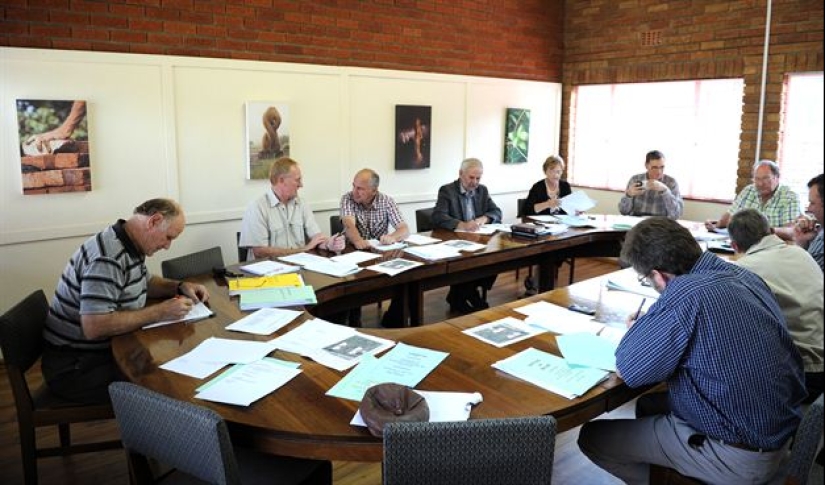
Meeting of the Board of Directors
The city has a clinic, two schools, its own municipal police, and communication with the outside world is minimal. The Council of Orania is constantly buying up new lands, and pays special attention to ecology. The city recycles 95% of its garbage and by 2020 it is planned to extract 80% of energy with solar panels, and the remaining 20% will fall on fuel for equipment.
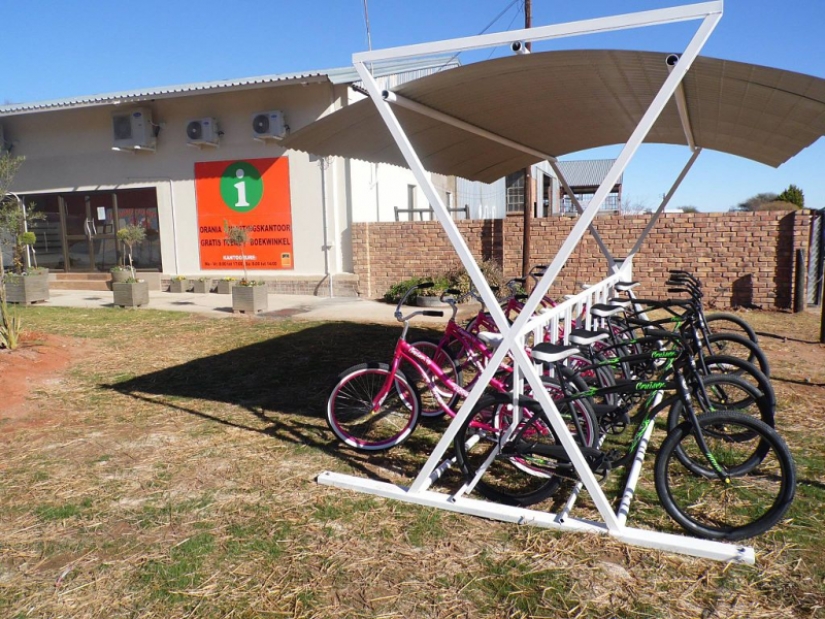
Parking for public bicycles

Orania has its own currency-ora, with a rate of 1:1 to the South African rand. Such money goes only on the territory of the city. The electronic version of ora has also been launched.
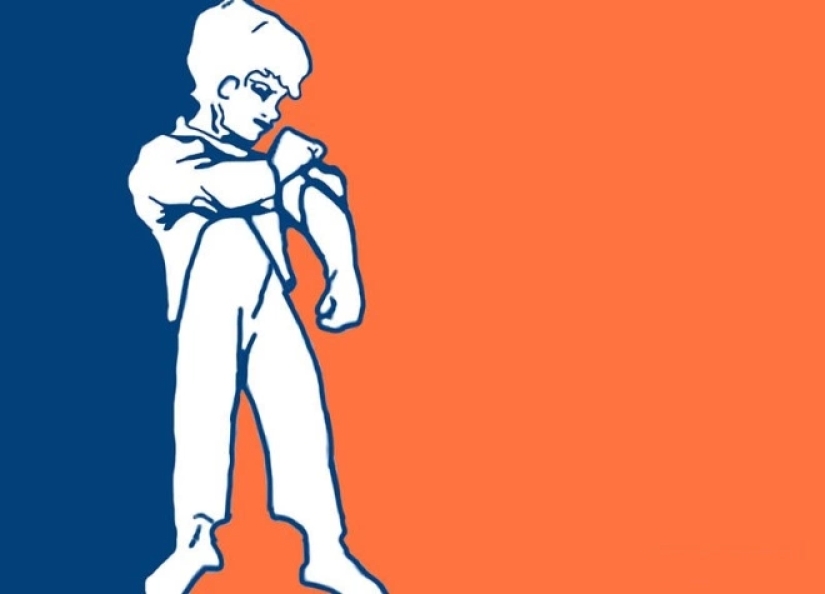
The flag of Orania is a boy rolling up his sleeves. This symbol means that the residents of the city are ready to work and fight.

25% of the residents of Orania are children of primary school age. Two Christian schools were built for their education.
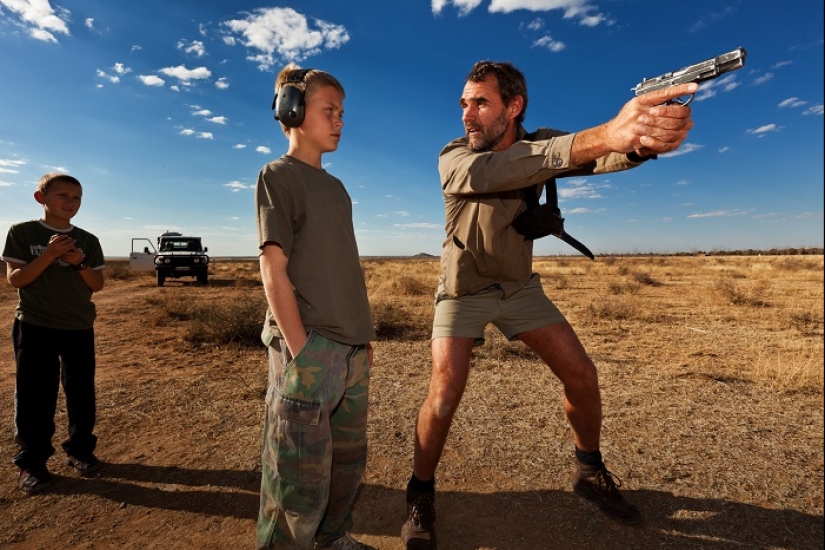
They also teach children self-defense. Special attention is paid to the skills of handling weapons.
For the functioning of the white society, all shareholders make annual monetary contributions, but the city owes its relative prosperity to agriculture. Orania's main source of income is pecan plantations, which Afrikaners import to China.
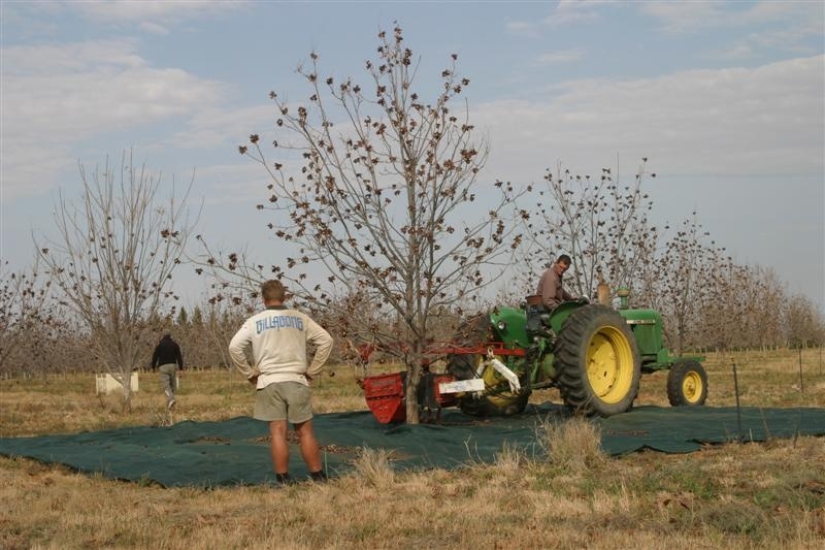
Collecting pecans
Cotton and other industrial crops are also grown. The Board of Directors relies on a private entrepreneur. There are more than 100 small enterprises and 7 construction companies operating in Orania. Much attention is paid to the development of tourism.
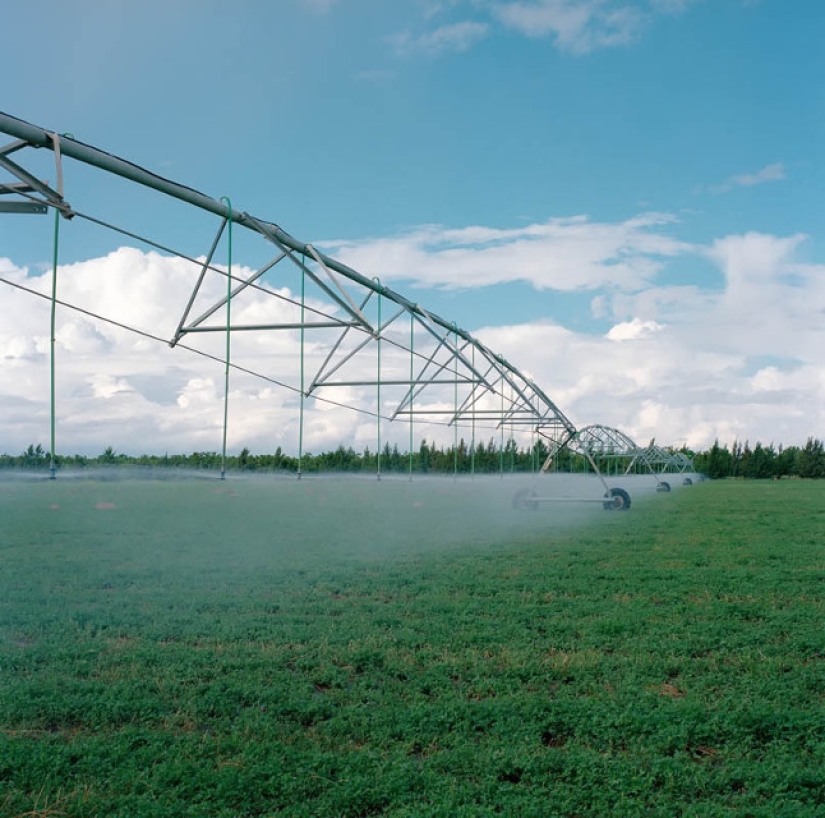
All fields are equipped with a modern irrigation system
The main problems of the city are considered to be the lack of housing, the predominance of the male population and relatively low wages. Difficulties do not prevent Orania from developing. The unemployment rate in the city is only 3% and there is an annual 10% economic growth.
Portraits of the inhabitants of Orania:

Keywords: Apartheid | City | Racism | South africa
Post News ArticleRecent articles

It's high time to admit that this whole hipster idea has gone too far. The concept has become so popular that even restaurants have ...

There is a perception that people only use 10% of their brain potential. But the heroes of our review, apparently, found a way to ...
Related articles

If you like peace and privacy, it is unlikely that you will choose a metropolis, going on vacation. Especially when in the world ...

The image of any city is determined by many factors and things: buildings, bridges, parks, sculptures... and benches. Yes, it is ...

Cities where people live, create planners. And the cities where we want to live, come up with the filmmakers. They, of course, ...

New Year's is a time to surprise and delight loved ones not only with gifts but also with a unique presentation of the holiday ...